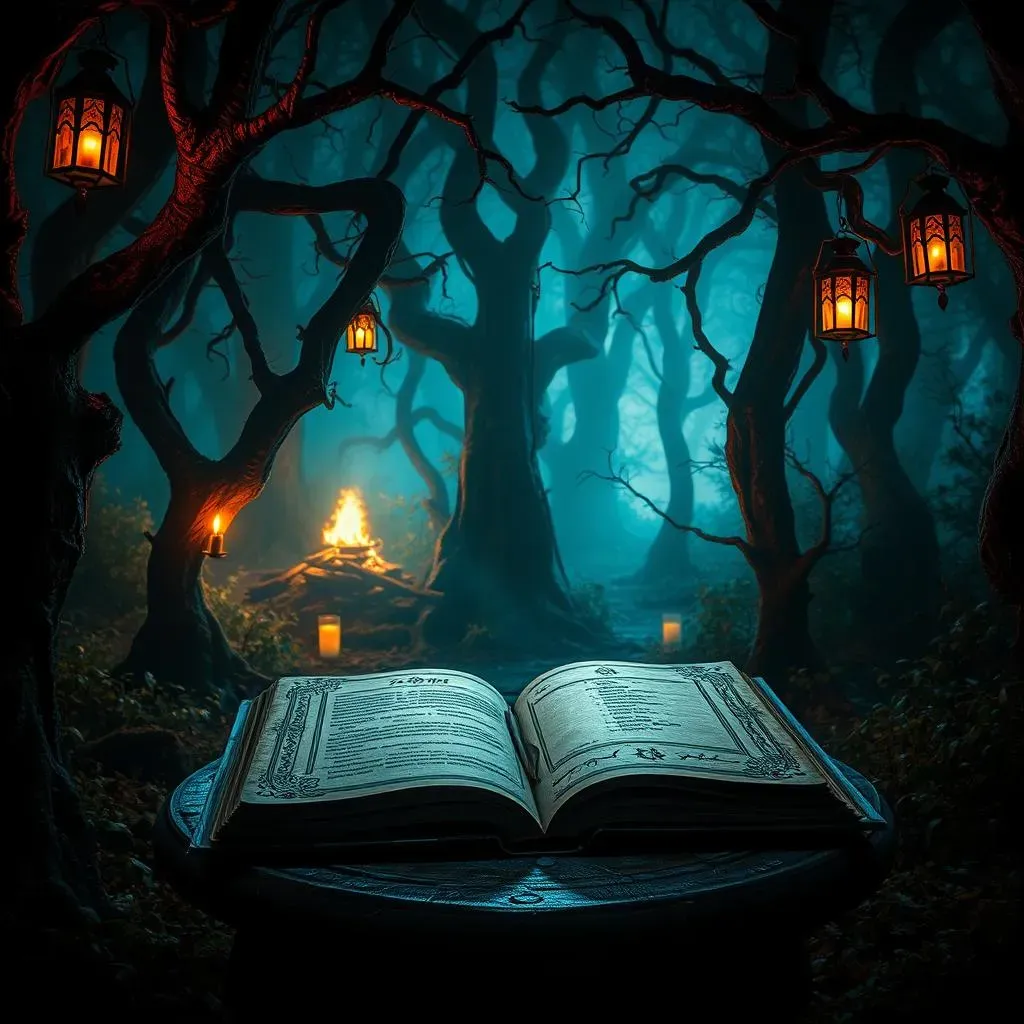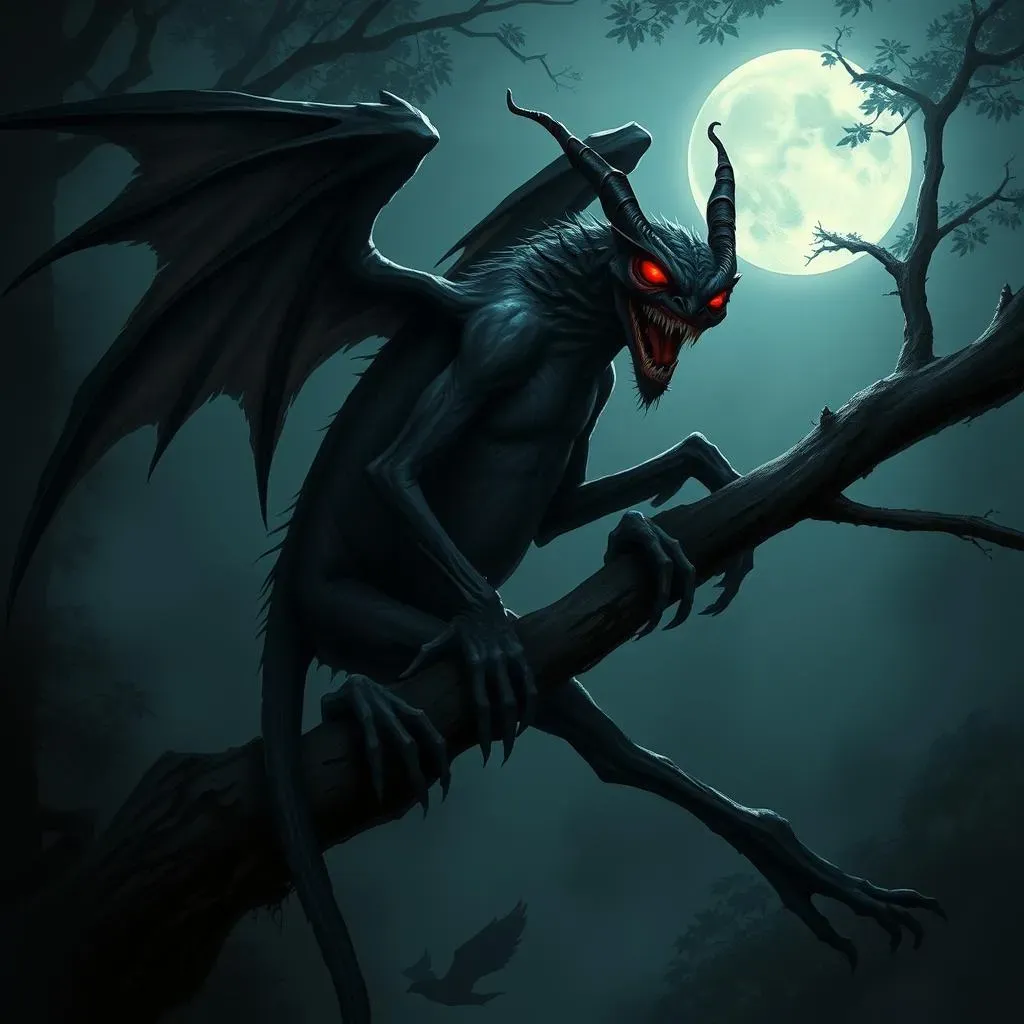Table of Contents
Ever felt a shiver down your spine from a story that might be true, or maybe not? That's the magic of urban legends! The Philippines, with its rich history and diverse culture, has a treasure trove of spooky stories passed down through generations. This isn't just about ghosts; it's about the strange, the unexplained, and the things that make you look over your shoulder. We're going on a journey through the "philippines urban legends wiki", a place where these tales are collected and shared. In this article, we'll explore what makes these legends so compelling, from the creepy creatures that lurk in the shadows to the eerie places that are said to be haunted. We’ll also look at how these stories have become part of Filipino culture, and why they continue to fascinate us. Ready to explore the spooky side of the Philippines? Let's get started!
Philippine Urban Legends Wiki: A Gateway to the Strange
Philippine Urban Legends Wiki: A Gateway to the Strange
What's the Buzz About?
Okay, so you're curious about the "philippines urban legends wiki," right? It's not just another website; it's like a digital campfire where all the spooky tales from the Philippines gather. Think of it as a massive online library, but instead of boring history books, it's filled with stories of creepy creatures, haunted places, and mysterious events that make you go "wait, what?". It’s a place to learn about the stories that have been whispered in the dark for years.
This wiki isn't some dusty old archive, it's alive! People are constantly adding new stories, or sharing their own experiences. It's the place to go if you want to know what keeps Filipinos up at night. I think it's pretty cool that you can explore all these different legends in one spot, whether you're looking for a good scare or just want to learn more about Filipino culture. It's more than just a collection of stories; it's a way to understand the beliefs and fears that have shaped the Philippines.
More Than Just Spooky Stories
It’s easy to think of the "philippines urban legends wiki" as just a collection of scary stories, but it’s much more than that. These stories often reflect real-life anxieties and cultural beliefs. For instance, some legends are about creatures that punish wrongdoers, which shows how important morality is in Filipino culture. Others warn about the dangers of certain places, maybe because of past events. It's like reading between the lines of history, but with a spooky twist.
I have to say, I love how these legends are passed down through families and communities. It’s like a living, breathing tradition that keeps evolving as each generation retells the stories. The wiki is a way to make sure these tales don't get lost, and it lets people from all over the world discover them. It’s a really great way to see how different cultures use stories to explain the world around them and to teach lessons.
Legend Type | Example | Cultural Significance |
|---|---|---|
Creature Legends | Aswang | Fear of the unknown, morality tales |
Haunted Places | Balete Drive | Respect for the past, warnings |
Mysterious Events | Manila Film Center | Remembering tragedies, cautionary tales |
Key Figures and Creatures in Philippines Urban Legends
Key Figures and Creatures in Philippines Urban Legends
The Shapeshifting Aswang
Let's talk about the star of the show, the Aswang. This creature isn't just one thing; it's a whole bunch of terrifying ideas rolled into one. Sometimes it's a vampire-like monster, other times it's a witch who can turn into an animal. It's the ultimate shapeshifter of Philippine legends! I find it fascinating how the Aswang adapts to different regions and stories, always managing to be the scariest thing in the room. It’s not just a monster; it’s a reflection of deep-seated fears and anxieties that have been passed down through generations.
What I really think is interesting is that the Aswang isn't just a random monster, they are often depicted as a neighbor or someone you know, which is way more creepy. Imagine not knowing if your friendly neighbor is actually a monster in disguise! This element of uncertainty is what makes the Aswang such a powerful figure in Philippine folklore. They're not just something you see in the dark; they're a possibility lurking in everyday life, and that's what makes them so chilling.
The Enigmatic Manananggal
Now, let's get to the Manananggal. This one is a real head-turner, or should I say, body-splitter? The Manananggal is a creature that can separate its torso from its lower body, sprouting bat-like wings and flying off to hunt. I mean, who comes up with this stuff? It's like a horror movie scene come to life. It's not just scary, it's also kind of impressive in a weird way. This legend really shows how creative and wild Philippine folklore can get.
I think the Manananggal is a great example of how legends can be both terrifying and fascinating at the same time. The image of a woman’s torso flying around at night is something that sticks with you, and it shows how Philippine culture uses these stories to explore fears and anxieties around nighttime and the unknown. It’s a reminder of the power of folklore to create truly unforgettable characters.
Creature | Key Features | Scare Factor |
|---|---|---|
Aswang | Shapeshifting, vampire-like | High, unpredictable |
Manananggal | Separates torso, bat-like wings | Very High, visually disturbing |
White Lady | Ghostly figure, often in white | Medium, unsettling |
Other Notable Figures
Of course, there are more creepy characters than just the Aswang and Manananggal. We also have the White Lady, a ghostly figure often seen on roads, and the Kapre, a giant tree-dwelling creature that loves tobacco. Each of these figures brings something different to the table, showing the diversity of Philippine folklore. It’s fascinating how these legends vary from region to region, adding even more layers to the stories.
I'm constantly amazed by how these stories have stood the test of time, continuing to be told and retold. It's really something to think about. The "philippines urban legends wiki" is such a great resource for diving into all these characters and understanding their significance. They're not just scary stories; they're a way to connect with the past and understand the fears and beliefs of generations of Filipinos.
Diving Deeper into the Philippines Urban Legends Wiki
Diving Deeper into the Philippines Urban Legends Wiki
Navigating the Wiki
Alright, so you're ready to really get into the "philippines urban legends wiki," huh? It's like stepping into a hidden world, but don't worry, it's not as scary as the stories themselves. The wiki is set up so you can easily find what you're looking for. You can search by creature, by location, or even by the type of legend you're interested in. I think it's great that they've made it so user-friendly, because there’s a ton of information there, and it can be a little overwhelming if you’re just starting out. It's like a map to all the spooky corners of the Philippines, and I'm excited for you to explore it.
One thing I really appreciate is how the wiki links different legends together. You might start reading about the Aswang and then find connections to other creatures or locations. It's like a big web of spooky stories, and it's really fun to see how they all relate to each other. The "philippines urban legends wiki" isn't just a collection of random tales; it's a carefully organized library that helps you understand the bigger picture of Filipino folklore. It makes exploring the legends feel like a treasure hunt, and I'm all for that.
Wiki Feature | How it Helps |
|---|---|
Search Function | Quickly find specific legends |
Categorized Pages | Browse by creature, location, or type |
Internal Links | Discover related legends and connections |
The Community Behind the Wiki
What makes the "philippines urban legends wiki" truly special is the community that keeps it going. It's not just some official thing; it's a collaborative project where people share their knowledge and experiences. Anyone can contribute, which means you get a wide range of perspectives and stories. I find it really cool that the wiki is always evolving and getting better as more people add their voices. It’s a fantastic example of how a community can keep these stories alive for future generations.
I've noticed that there are often discussions on the wiki pages, where people debate the details of a legend or share their own encounters. It's like a big, ongoing conversation about the spooky side of the Philippines, and I think that's really amazing. It shows how much these stories mean to people, and how they continue to be a part of Filipino culture. It’s more than just reading; it’s about joining a community that’s passionate about these tales.
Why It Matters
So, why should you care about the "philippines urban legends wiki?" Well, it's not just about getting a good scare. These legends are a window into the heart and soul of Filipino culture. They reflect the values, fears, and beliefs that have shaped the Philippines for centuries. I think it's pretty amazing that you can learn so much about a culture through its spooky stories. They give you a peek into the collective imagination of a people, and that’s something really valuable.
I believe that exploring the "philippines urban legends wiki" is a great way to connect with the past and understand the present. These stories aren't just relics of the past; they're still alive and relevant today. They remind us that there's more to the world than what we see, and they encourage us to keep our minds open to the mysterious and the unexplained. It's about more than just folklore; it's about understanding the human experience through the lens of scary stories.
